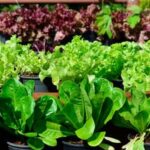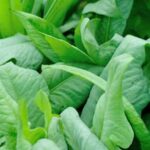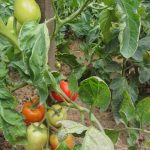When is horse manure safe for vegetable gardens? For gardeners looking for an organic and nutrient-rich way to enhance their vegetable plants, horse manure can be a valuable resource. This natural fertilizer is packed with essential nutrients that can help plants thrive and produce abundant yields. However, it’s crucial to understand the risks associated with using fresh horse manure in gardens before reaping its benefits.
While fresh horse manure contains beneficial nutrients like nitrogen, phosphorus, and potassium, it can also pose potential dangers to plants and humans. The high levels of ammonia and pathogens present in fresh manure can harm delicate plant roots and potentially transmit diseases to humans through contaminated crops. To mitigate these risks and make horse manure safe for vegetable gardens, composting is essential.
Composting horse manure not only eliminates harmful pathogens but also breaks down the materials into a form that is easier for plants to absorb. By understanding the process of composting horse manure and recognizing the signs of readiness, gardeners can ensure that their vegetable gardens receive all the benefits of this natural fertilizer without any negative consequences.
Understanding the Risks
When considering using horse manure in vegetable gardens, it is crucial to understand the potential risks associated with using fresh manure. Fresh horse manure can contain harmful pathogens such as E. coli and Salmonella, which can pose health risks to humans when not handled properly. These pathogens can contaminate vegetables and fruits grown in soil amended with fresh manure, leading to foodborne illnesses if consumed.
Furthermore, fresh horse manure may also contain high levels of ammonia, which can burn plant roots and damage delicate vegetable crops. The high nitrogen content in fresh manure can also lead to an imbalance in soil nutrients, causing harm to plants rather than providing them with the necessary nutrients they need for healthy growth. This imbalance can negatively impact the yield and quality of vegetables grown in soil treated with fresh horse manure.
To mitigate these risks and ensure the safety of using horse manure in vegetable gardens, it is important to properly compost the manure before application. Composting not only helps break down pathogens and reduce ammonia levels but also allows the organic matter to decompose into nutrient-rich humus that enriches the soil. By following proper composting techniques, gardeners can transform potentially harmful fresh horse manure into a beneficial amendment for their vegetable gardens.
| Potential Risks | Effects |
|---|---|
| Harmful pathogens like E.coli and Salmonella | Potential foodborne illnesses if consumed |
| High levels of ammonia | Root burns and damage to vegetable crops |
| Imbalance in soil nutrients | Negative impact on plant growth and yield |
Composting Horse Manure
Using horse manure in vegetable gardens can provide numerous benefits, such as enriching the soil with essential nutrients and improving overall plant health. However, it is crucial to understand the potential risks associated with using fresh horse manure before adding it directly to your garden beds. Fresh horse manure can contain harmful pathogens and high levels of ammonia that could damage plants or pose health risks to humans if not properly composted.
Understanding the Risks of Fresh Horse Manure
Fresh horse manure contains high levels of nitrogen and other nutrients that are beneficial for plants, but it also harbors weed seeds, bacteria, and parasites that can be harmful. When fresh manure is applied directly to the soil, these pathogens can contaminate vegetables and increase the risk of foodborne illnesses.
Additionally, the high levels of ammonia in fresh manure can burn plant roots and inhibit seed germination. To avoid these risks, it is essential to compost horse manure before using it in vegetable gardens.
The Composting Process
Composting horse manure is a simple process that involves creating a pile of manure mixed with carbon-rich materials like straw, leaves, or sawdust. The mixture should be turned regularly to allow for proper aeration and decomposition. As the compost pile heats up, beneficial microorganisms break down the organic matter, killing off harmful pathogens in the process.
Over time, the compost will mature into a dark, crumbly material with an earthy smell – indicating that it is ready to be used in vegetable gardens. This composted horse manure is rich in nutrients like nitrogen, phosphorus, and potassium, making it an excellent soil amendment for growing healthy vegetables.
By following proper composting techniques and waiting until the horse manure has fully decomposed into nutrient-rich compost, you can ensure that your vegetable garden benefits from all the advantages of using horse manure without any of the associated risks. Knowing when horse manure is safe for vegetable gardens will help you maintain healthy soil, promote robust plant growth, and enjoy a bountiful harvest of delicious homegrown vegetables.
Signs of Readiness
When it comes to using horse manure in vegetable gardens, ensuring that it is fully composted is crucial to prevent any potential risks. Composting horse manure not only helps in breaking down pathogens and weed seeds but also allows for the release of beneficial nutrients for plant growth. Here are some signs to look out for when determining if horse manure is fully composted and safe for use in your vegetable garden:
- Temperature: One key indicator that horse manure is fully composted is a decrease in temperature. Fresh manure will generate heat as it decomposes, but once the temperature stabilizes and returns to ambient levels, it is a sign that the composting process is complete.
- Appearance: Fully composted horse manure will have a dark, crumbly texture with an earthy smell. It should no longer resemble fresh manure and should be free of any recognizable materials or odors.
- Time: Composting horse manure typically takes around 3 to 6 months, depending on factors such as temperature, moisture levels, and the size of the compost pile. Ensuring that adequate time has been given for the decomposition process is essential before using it in your vegetable garden.
Determining when horse manure is safe for vegetable gardens requires patience and attention to detail. By following these signs of readiness, you can ensure that the composted horse manure provides all the benefits without any risks.
- Conduct a visual inspection: Check for any remaining traces of straw or bedding material in the composted horse manure, as they may indicate incomplete decomposition.
- Perform a smell test: Fully composted horse manure should have a pleasant earthy smell reminiscent of soil. If there are any foul odors present, continue the composting process until they disappear.
- Test its impact on plants: Before incorporating composted horse manure into your vegetable garden on a large scale, consider doing a small test patch to observe how plants respond. If there are no adverse effects after a few weeks, it is likely safe for broader use.
By paying attention to these indicators and taking the necessary precautions, you can confidently use well-composted horse manure in your vegetable garden to enhance soil fertility and promote healthy plant growth.
Best Practices for Application
When it comes to incorporating composted horse manure into vegetable gardens, there are some best practices that can help ensure a successful and safe application. Composted horse manure is a valuable source of nutrients for plants, but if not used correctly, it can pose risks to your garden. Here are some tips on how to effectively incorporate composted horse manure into your vegetable garden:
- Wait for the right time: To answer the question “When is horse manure safe for vegetable gardens?”, it is important to make sure that the horse manure has been fully composted. Fresh manure contains high levels of ammonia and pathogens that can harm plants. Composting breaks down these harmful components and turns the manure into a nutrient-rich fertilizer.
- Introduce gradually: When adding composted horse manure to your vegetable garden, it’s best to introduce it gradually. Mix small amounts of composted manure into the soil before planting, making sure not to overwhelm the plants with too much fertilizer at once.
- Monitor soil health: Keep an eye on the health of your soil after incorporating composted horse manure. Regularly check pH levels and nutrient content to ensure that your plants are receiving the appropriate balance of nutrients for healthy growth.
Using composted horse manure in your vegetable garden can provide numerous benefits, such as improving soil structure, increasing water retention, and supplying essential nutrients to your plants. By following these best practices for application, you can maximize the benefits of using horse manure while minimizing any potential risks. Remember to prioritize safety and sustainability when using organic fertilizers like composted horse manure in your vegetable garden.
Benefits for Vegetable Plants
Nutrient-Rich Soil Booster
Horse manure is a valuable source of nutrients for vegetable plants. It contains essential elements such as nitrogen, phosphorus, and potassium, which are vital for healthy plant growth. Nitrogen is important for leafy vegetables like lettuce and spinach, phosphorus aids in root development and flowering, while potassium helps with overall plant health and disease resistance. By incorporating composted horse manure into the soil, vegetable plants can benefit from these nutrients to thrive and produce abundant yields.
Improves Soil Structure
In addition to providing essential nutrients, horse manure also helps improve the soil structure in vegetable gardens. The organic matter in composted horse manure helps loosen compacted soils, allowing for better root penetration and water retention.
This improved soil structure encourages beneficial soil organisms like earthworms to thrive, creating a healthy ecosystem underground that supports the growth of vegetable plants. As a result, vegetable plants grown in soil enhanced with horse manure are more likely to have stronger root systems and better access to nutrients.
Enhanced Plant Growth and Yield
When used properly, horse manure can lead to enhanced plant growth and increased yield in vegetable gardens. The nutrients present in composted horse manure nourish the plants throughout their growth stages, promoting vigorous growth and robust production of fruits or vegetables.
Additionally, the improved soil structure provided by horse manure allows roots to access water and nutrients more efficiently, leading to healthier plants that are able to withstand environmental stressors. Overall, incorporating composted horse manure into vegetable gardens can result in bountiful harvests of high-quality produce.
Common Mistakes to Avoid
When is horse manure safe for vegetable gardens? This question is crucial for gardeners looking to utilize the benefits of this natural fertilizer without risking the health of their plants. One common mistake to avoid is using fresh horse manure directly in vegetable gardens.
Fresh manure can contain harmful pathogens and high levels of nitrogen that can burn or damage plants, ultimately leading to negative consequences. To prevent any risks, it is essential to understand how to properly compost horse manure before incorporating it into your garden.
Composting horse manure plays a key role in making it safe for use in vegetable gardens. The process involves allowing the manure to decompose and break down over time, which helps eliminate any harmful bacteria and reduces the nitrogen levels.
When horse manure reaches a certain level of decomposition, it becomes a valuable source of nutrients for your plants, enriching the soil and promoting healthy growth. By composting horse manure properly, you can ensure that it is safe and beneficial for your vegetable garden.
Determining when horse manure is fully composted and safe for use requires attention to several signs of readiness. Fully composted horse manure should have a dark color, crumbly texture, and an earthy smell.
Additionally, there should be no visible traces of the original material, indicating that the decomposition process is complete. Testing the temperature of the compost pile can also indicate its readiness; when the temperature stabilizes and cools down, the composted horse manure is likely safe for application in your vegetable garden.
| Aspect | Information |
|---|---|
| Risks of using fresh horse manure | Potential dangers include harmful pathogens and high nitrogen levels |
| Composting process | Allows elimination of harmful bacteria and reduction of nitrogen levels |
| Signs of readiness | Dark color, crumbly texture, earthy smell, no visible traces of original material, stabilized temperature |
Conclusion
In conclusion, using horse manure in vegetable gardens can be a beneficial practice as it provides essential nutrients and improves soil quality. However, it is crucial to understand the risks associated with using fresh horse manure and take necessary precautions to ensure its safety for vegetable plants. By composting horse manure properly, gardeners can eliminate any potential dangers and create a nutrient-rich fertilizer for their crops.
When is horse manure safe for vegetable gardens? The key lies in recognizing the signs of readiness in composted horse manure. Once the composting process is complete, usually indicated by the absence of foul odors and a dark, crumbly texture, the horse manure is safe to use in vegetable gardens. It is important not to rush this process and allow enough time for proper decomposition to occur before applying the compost to your garden beds.
To effectively incorporate composted horse manure into vegetable gardens, follow best practices such as mixing it thoroughly into the soil, avoiding direct contact with plant roots, and ensuring proper watering to activate nutrient release. By adhering to these guidelines and avoiding common mistakes like over-application or using fresh manure, gardeners can maximize the benefits of horse manure while minimizing any potential negative impacts on their vegetable crops.
With careful handling and understanding of when horse manure is safe for use, gardeners can enjoy healthier plants and bountiful harvests in their vegetable gardens.
Frequently Asked Questions
How Long Does Horse Manure Need to Sit Before Using in Garden?
Horse manure needs to sit for at least six months before using it in the garden. This allows time for the composting process to break down any harmful pathogens and weeds that may be present in the manure.
When Should You Not Use Horse Manure?
It is not advisable to use fresh horse manure in your garden, as it can contain high levels of nitrogen that can burn plant roots. Additionally, there is a risk of weed seeds surviving the composting process and growing in your garden.
Can I Put Horse Manure on My Vegetable Garden?
Yes, you can put horse manure on your vegetable garden after it has been properly composted for at least six months. Composted horse manure is a great source of nutrients for plants and can help improve soil structure and fertility in your vegetable garden.

If you’re looking to get into vegetable gardening, or are just looking for some tips on how to make your current garden better, then you’ve come to the right place! My name is Ethel and I have been gardening for years. In this blog, I’m going to share with you some of my best tips on how to create a successful vegetable garden.





